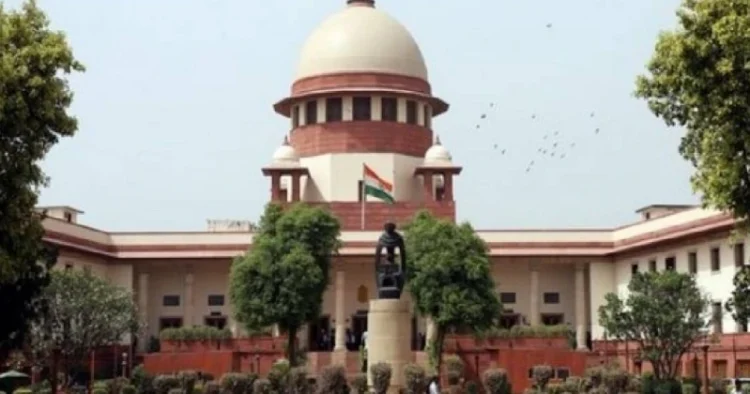A Supreme Court Constitution Bench on September 11 ruled that striking down the provision of Section 6A of the Delhi Special Police Establishment (DSPE) Act granting immunity from arrest would have a retrospective effect.
This it meant that the provision will be considered to be not in force since September 2003 when it was inserted.
The judgement was delivered by the five-judge bench of Justices Sanjay Kishan Kaul, Sanjiv Khanna, Abhay S Oka, Vikram Nath and JK Maheshwari.
“The judgment in Subramanian Swamy will have retrospective effect,” the court ruled and said that Section 6A of the DSPE Act will be considered as having been not in force from the date of its insertion.
According to the provision of Section 6A(1) DSPE Act, officers of the level of Joint Secretary and above a kind have provided immunity from arrest.
The constitution bench was dealing with questions whether there can be a deprivation of such immunity by a retrospective operation of a judgment of the Court, in the context of Article 20 of the Constitution of India. The two-judge bench in 2016 has referred the matter to a larger bench. Section 6A(1) of the Delhi Special Police Establishment Act, 1946 which was brought in an amendment in the year 2003.
The provisions of Section 6A(1) of the Delhi Special Police Establishment Act, 1946 have been held to be unconstitutional being violative of Article 14 of the Constitution of India by a Constitution Bench of the top court in Subramanian Swamy versus Director, Central Bureau of Investigation matter. The judgment of the Constitution Bench was however then silent as to whether its decision would operate prospectively or would have retrospective effect.
The issue was raised to the Supreme Court when the CBI approached it challenging a Delhi High Court order.
(with inputs from ANI)



















Comments